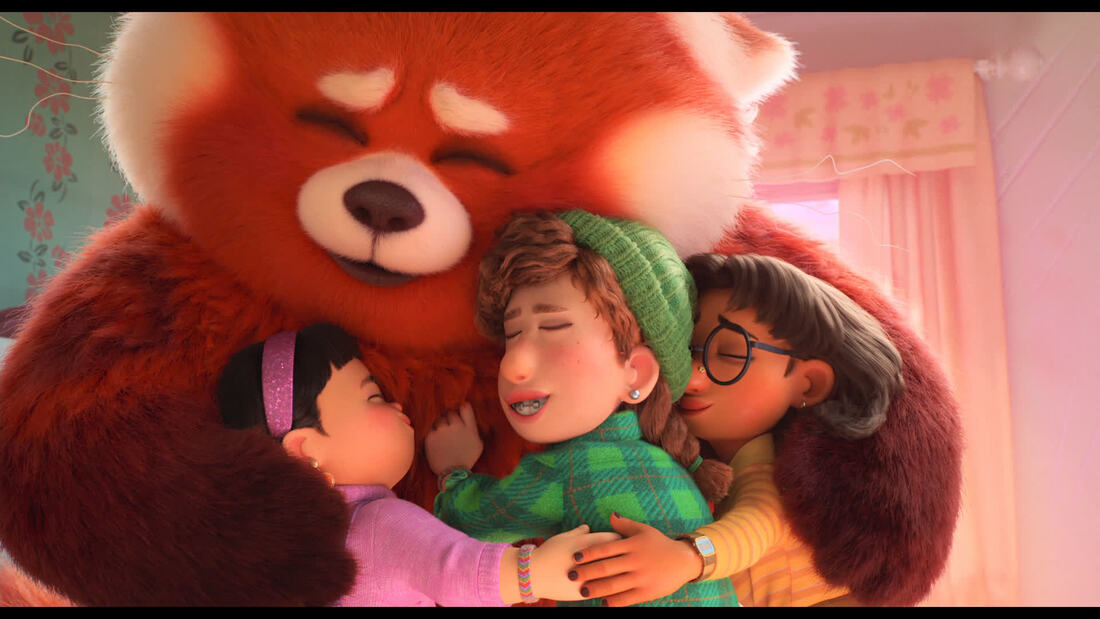It’s not difficult to draw metaphorical conclusions about a teen suddenly experiencing these kinds of changes. Turning Red’s function isn’t as a puberty metaphor, but as a visceral exemplar of the fiery feelings that develop between parents and children, even when everything appears to be going fine. That feeling of being embarrassed by one’s parents is one thing. Another is the total obliviousness to how their actions might be interpreted by the child or by the child’s peers. In a moment like the aforementioned run-in with the clerk and another equally horrifying scene, the child has nowhere to put their fury without making the situation worse. These incidents are so intense that they implant forever, and Turning Red is one of the few films in memory that get this phenomenon exactly right. As introduced, a character like Mei has no language or ability to tell Ming that she’s developed her own will and life away from the family, and her body reacts to this adolescent injustice by creating a new id-fueled version of itself.
As the film sets up its final dilemma of whether Mei will attempt to cure her panda-ness or go to a boy band concert with her friends, Turning Red further demonstrates how damaged her relationship with Ming has become. Mei is able to control her transformations through meditation, but the thing she focuses on isn’t a happy family moment. Her mind palace is instead populated by her friends, people who don’t ask anything of her but her presence. Turning Red isn’t exactly a refutation of the tiger mom trope, though that reading is there. There’s nothing culturally specific about a parent trying to constrain the world of their child, and the film shows how much of a losing proposition such a constriction is. Keep putting walls up around a human biologically driven to escape them, and they’ll find craftier ways to break them down. Treat them like the child they no longer are and cement their footing in a world that no longer contains the parent.
What is culturally specific in Turning Red is an homage to Asian animation, specifically Japanese aesthetics. The Pixar house style dominates, with all the technical precision that’s most represented here by all the lines of code dedicated to the individual hairs on Mei’s red panda belly. Within that framework are obvious callbacks to Totoro from Studio Ghibli and the anime obsession with making food look as delicious as possible. Mei’s outsize facial expressions aren’t typical for Pixar, but they work here alongside the anime influence. Being a novice to that genre and style, it seems that much of it is about gigantic teenage emotions expressing themselves through fantasy or sci-fi, and Turning Red fits within that tradition.
By turns adorable and evocative, Turning Red is a strong Pixar entry that only misses the studios top-tier because they’ve churned out such great work for so long. It works best as a child-parent story, one where the kid is more or less alright and it’s the parent who needs to consider their strategies. With two hits, Shi has perhaps exhausted her biographical material and that’s often a fraught place for a director. Her clarity on a true and underexplored part of being a young teen speaks to a healthy amount of empathetic perception, and gives the viewer confidence that, like Mei, she’s going to be fine if only her parent/parent company can get out of her way. B+

 RSS Feed
RSS Feed